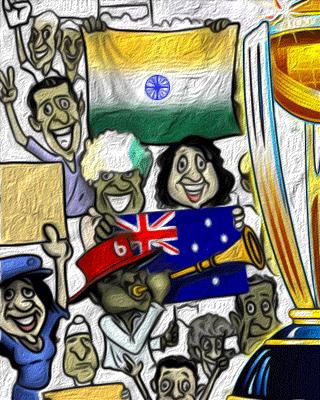 In the six days between Wednesday 5th August and Monday 10th August, the Working Group formed by the BCCI to recommend a response to the Lodha order suspending Chennai Super Kings and Rajasthan Royals from the IPL for two seasons, met the “stakeholders” relevant to their proposals.
In the six days between Wednesday 5th August and Monday 10th August, the Working Group formed by the BCCI to recommend a response to the Lodha order suspending Chennai Super Kings and Rajasthan Royals from the IPL for two seasons, met the “stakeholders” relevant to their proposals.
First it was representatives of Kolkata Knight Riders on the Wednesday; then the next day it was Royal Challengers Bangalore and Delhi Daredevils before Kings XI Punjab, Mumbai Indians and Sunrisers Hyderabad on the Saturday. In amongst those meetings, revealed IPL Chairman and member of the Working Group Rajeev Shukla, the group had also met broadcasters Sony and STAR, and one of the IPL’s principal sponsors, CEAT. On Monday, the group met with representatives of the title sponsors, PepsiCo India.
“We have completed our meeting with stakeholders and have taken into account their suggestions,” said BCCI Secretary Anurag Thakur on Monday (10th August). Oh you have? You have completed your meeting with “stakeholders”? But what about the fans? It was reported that Shukla “received” the 13,000-strong petition asking for CSK to be reinstated to the IPL from ten CSK fans who travelled the 830 miles to Mumbai on Sunday, but if that was a ‘meeting’ then it was a rather brief and fortuitous one.
Of course, it is no surprise that the Working Group has once again overlooked cricket’s most important stakeholder, its fans; but it is yet another damning indictment of cricket administrators’ arrogant disregard for those who make the sport what it is.
“
Meetings with the six franchises, broadcasters and sponsors, all heavily financially invested in the league, were obviously going to be central to the Working Group’s investigation as they were instructed to consult with “all the key stakeholders” before recommending a response. But for a board and a sport so in thrall to the market, ignoring the market’s consumers is most conspicuously just bad business.
”
Not, of course, that the fans would necessarily have offered a workable or consensual solution, but for a board suddenly awfully concerned with its “perception,” the BCCI have disregarded interaction with the stakeholder most capable of improving it. That the results of online surveys, feedback sessions and group meetings between officials and fans could, and most probably would, simply be ignored by the BCCI is beside the point. If it isn’t to be pertinent interaction with some substance, then at the very least it is about making an effort and being seen doing so. As the BCCI will surely tell you: it’s about image.
But then again, image is something the BCCI are far keener to endorse than they are to fulfil. If they were going to fulfil it, then surely more than the reported two of the five-member Working Group would have made it to the group’s second meeting. That Thakur, Sourav Ganguly and Usha Nath Banerjee were absent from the Working Group’s meeting with representatives of RCB and DD is unsurprising, but no less unacceptable as a result. The BCCI recognised the “urgency” of CSK and RR’s suspension immediately after the order was passed, and that the trio are surely busy men is simply not an excuse. What’s more, if a positive image is something the BCCI are keen to fulfil, then surely Sundar Raman—a man who remains under investigation by the very Lodha committee that the BCCI are seemingly keen to appease—would not have been present in the meetings organised to plan the future of the IPL following a scandal in which Raman himself remains heavily implicated. Cricket deserves better. Cricket’s fans deserve better.
The BCCI have made some encouraging suggestions recently, most notably the preparation of a Code of Ethics, but for each step forward they take, look a little closer and they seem to take just as many back.
In 2010, in one of his final acts as a BCCI official at the IPL Closing Ceremony, Lalit Modi thanked the “fans in India and all over the world” for the success of the IPL. “It is your passion that is the reason we built the IPL, it is your passion that sustains us, your passion that enriches us. This is not the Indian Premier League,” he said, “It is the Indian People League.”
It may not seem like it, but beneath the private ownership, multi-million dollar deals and elitism of the IPL, Modi was right then and he’s still right now.
At least back then, for whatever motivations, he had the pride and common sense to admit it. Sadly, the same cannot be said of the BCCI today.